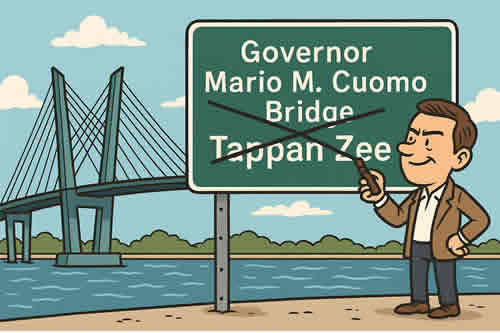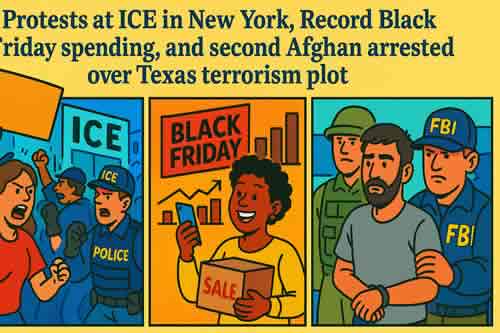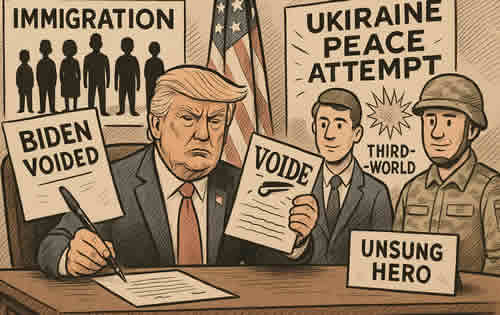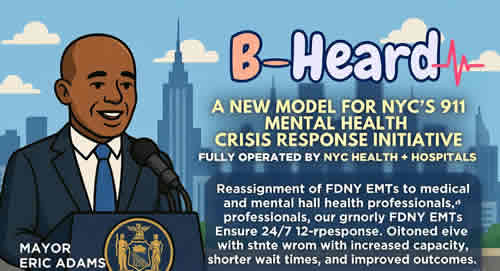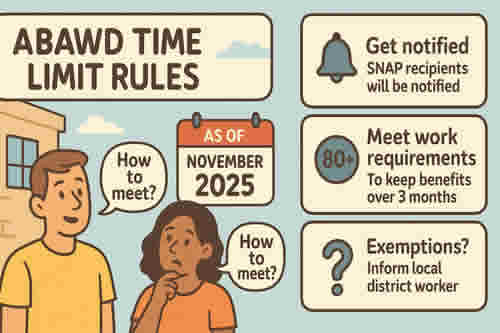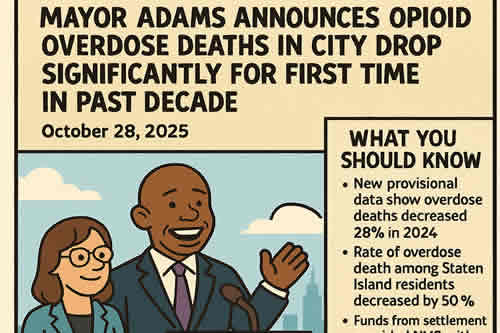New York City Mayor Eric Adams and the Department of Consumer and Worker Protection (DCWP) announced a $38.9 million settlement with Starbucks resolving more than 500,000 alleged violations of the city’s Fair Workweek Law at over 300 locations between 2021 and 2024. Under the agreement, Starbucks will provide more than $35.5 million in restitution to over 15,000 current and former hourly employees in New York City—generally $50 for each week worked from July 4, 2021 through July 7, 2024—and pay $3.4 million in civil penalties and costs. DCWP’s investigation found that the company failed to provide consistent and predictable schedules, reduced hours by more than 15 percent in many cases, and did not adequately offer additional shifts to existing staff, resulting in involuntary part-time work. The settlement requires Starbucks to comply with Fair Workweek requirements going forward and allows workers who experienced violations after July 7, 2024, or who were affected by recent store closures, to seek additional relief through DCWP’s complaint process.
Mayor Adams, DCWP Announce $38 Million Settlement With Starbucks in Largest Worker Protection Settlement in City History
What you should know
- Historic Settlement Follows Multi-Year Investigation by Adams Administration
- All Hourly Starbucks Workers From July 2021 to July 2024 in New York City to Receive Restitution Payments, Agreement Expected to Benefit Over 15,000 Workers
- Over 300 Starbucks Locations Across City Arbitrarily Cut Workers’ Hours, Involuntarily Kept Them in Part-Time Work, and Failed to Provide Predictable Schedules, Resulting in Over 500,00 Violations of the Fair Workweek Law
– New York City Mayor Eric Adams and New York City Department of Consumer and Worker Protection (DCWP) Commissioner Vilda Vera Mayuga today announced a landmark $38.9 million settlement with Starbucks for widespread violation of the city’s Fair Workweek Law — the largest worker protection settlement in New York City history. A multi-year investigation by DCWP found that Starbucks committed more than half a million violations of the law since 2021, illegally denying thousands of workers across more than 300 locations the right to stable and predictable schedules, as well as the right to pick up additional hours and earn more; instead, Starbucks arbitrarily cut schedules and illegally prioritized their own profits over their workers’ rights.
The settlement announced today requires Starbucks to pay more than $35.5 million in restitution to over 15,000 workers harmed by Starbucks’ unlawful practices, as well as any additional workers who come forward. The settlement also requires Starbucks to pay $3.4 million in civil penalties and costs and requires the company to comply with the law going forward. With today’s settlement, the Adams administration has now secured nearly $90 million in worker relief from different companies as it ensures New York workers get every dollar they have earned.
“It does not matter how big your business is or how much money your company makes, if you violate our workers’ rights, you will pay the price,” said Mayor Adams. “With this landmark settlement, we’ll put tens of millions of dollars back into the pockets of hard-working New Yorkers and reinforce every New Yorker’s right to a reliable schedule, full hours, and basic dignity. We’ll make sure that New York City remains a place where employees are treated fairly and working-class people can still get ahead.”
“The city’s Fair Workweek Law provides workers with vital protections, like the right to a predictable schedule so workers can plan their lives and earn stable incomes, but Starbucks chose to ignore these rights and prioritize their own bottom line,” said DCWP Commissioner Mayuga. “All workers deserve to be treated with dignity, and we are proud to stand up for our neighbors when a multibillion-dollar company like Starbucks chooses to systematically violate their employees’ rights.”
DCWP launched an investigation into Starbucks in 2022 after receiving dozens of worker complaints about several Starbucks locations. Based on the evidence gathered — including reports from hundreds of employees and data from Starbucks — DCWP uncovered a pattern of systemic violations beyond the initial locations. DCWP then expanded the investigation to all Starbucks locations citywide.
DCWP’s investigation found that most Starbucks employees in New York City never received regular schedules, making it difficult for workers to plan other commitments, such as child care, education, or second jobs. Starbucks also routinely and unlawfully reduced employees’ hours by more than 15 percent, making it difficult for employees to know how much money they would make week to week or whether they would earn enough to get by. Further, Starbucks denied workers the opportunity to pick up additional shifts, keeping them involuntarily in part-time work while continuing to hire new workers.
Under today’s agreement, most employees who worked for Starbucks in an hourly position in New York City will receive $50 for each week worked from July 4, 2021 through July 7, 2024. For example, an employee who worked for Starbucks continuously for a year and a half (78 weeks) will receive $3,900. Employees will receive a check in the mail this winter. Any employee who experienced a violation after July 7, 2024 may be eligible for compensation under the settlement by filing a complaint with DCWP.
The settlement also carves out claims related to layoffs following Starbucks’ recent closures of New York City stores. Under the law, laid-off employees have a right to reinstatement at other open locations. DCWP is monitoring Starbucks’ compliance with this obligation and assisting workers who want reinstatement. Workers who want to file a complaint to claim restitution or experience violations of their right to reinstatement should contact DCWP online or call 311.
Under the Fair Workweek Law, fast food employers in New York City must give workers regular schedules, work schedules 14 days in advance that are consistent with the regular schedule, premium pay for schedule changes, the opportunity to decline to work additional time, and the opportunity to work newly available shifts before hiring new workers. Fast food employers also cannot schedule a “clopening” shift (a closing shift one night, followed by an opening shift the very next morning) unless the worker consents in writing and receives a $100 premium to work the shift. Additionally, these fast food employers cannot fire or reduce the hours of a worker by more than 15 percent without just cause and must reinstate laid-off workers at their other locations.
The Workers’ Bill of Rights — a multilingual and comprehensive guide to rights in the workplace in New York City — summarizes the laws that protect workers, including employees, freelancers, workers classified as independent contractors, and job applicants in New York City, regardless of immigration status. The Workers’ Bill of Rights includes information on rights enforced by DCWP, like Paid Safe and Sick Leave, the Fair Workweek Law, the Temporary Schedule Change Law, and the city’s Delivery Worker Laws, as well as rights enforced by other state and federal agencies, like minimum wage and the right to organize. It also includes information about who to contact for more information or with questions, as well as how to file a complaint. Workers and employers can visit DCWP’s workers’ rights site or call 311 (212-NEW-YORK outside New York City) for more information about the laws that DCWP enforces or to file a complaint. Complaints can be filed anonymously. It is illegal to retaliate against workers for filing complaints.
“This historic settlement marks a major victory for thousands of Starbucks baristas across New York City. For too long, Starbucks has acted with impunity: manipulating schedules, disrespecting workers, and ignoring legal protections put into place by New Yorkers to protect working people from unfair business practices,” said Lynne Fox, international president, Workers United. “The settlement money awarded to Starbucks baristas will help them make ends meet this winter. Thousands of Starbucks baristas in New York City and across the country remain on an Unfair Labor Practices strike and are demanding a fair union contract that memorializes job protections, better staffing, and higher pay. We are grateful to DCWP for holding Starbucks accountable for the baristas who keep their stores running.”
“Starbucks workers deserved predictable hours and a fair shot at full-time work, and this settlement delivers real accountability,” said Brendan Griffith, president, New York City Central Labor Council, AFL-CIO. “We applaud DCWP for enforcing the Fair Workweek Law and making sure thousands of working people get money they were denied. At a moment when Starbucks workers across the country, including here in New York City, are on a unfair labor practice strike for living wages, fair schedules, and respect on the job, this action sends a clear signal that workers’ rights matter and must be upheld.”
“Far too often companies that abuse their workers, for reasons of pure corporate greed, do so without any repercussions,” said Theodore A. Moore, executive director, The Alliance for a Greater New York. “Thankfully, this is not one of those occasions. We applaud the work of Commissioner Mayuga and the amazing team at DCWP for their extraordinary enforcement of our city’s Fair Workweek Law. We hope this settlement will embolden workers to speak up and fight, while letting corporations know that their evil deeds will not go unpunished!”
“Baristas are what keep Starbucks running. From Astoria to South Slope, we are the ones who create the warm, welcoming environment Starbucks advertises. When this company cuts our hours, understaffs our stores, and busts our union, it makes it harder for us to do our job and create that great experience for customers,” said Kai Fritz, barista, Starbucks. “This settlement is a step in the right direction. It shows the power baristas have when we stand together and demand change. We are continuing to fight back against Starbucks’ greed and will not stop until we have a fair contract that ensures the support and protections we need to thrive.”
December 1, 2025 New York
Sources: NYC.gov , Big New York news BigNY.com
Midtown Tribune News
Midtown Tribune Independent USA news from New York




